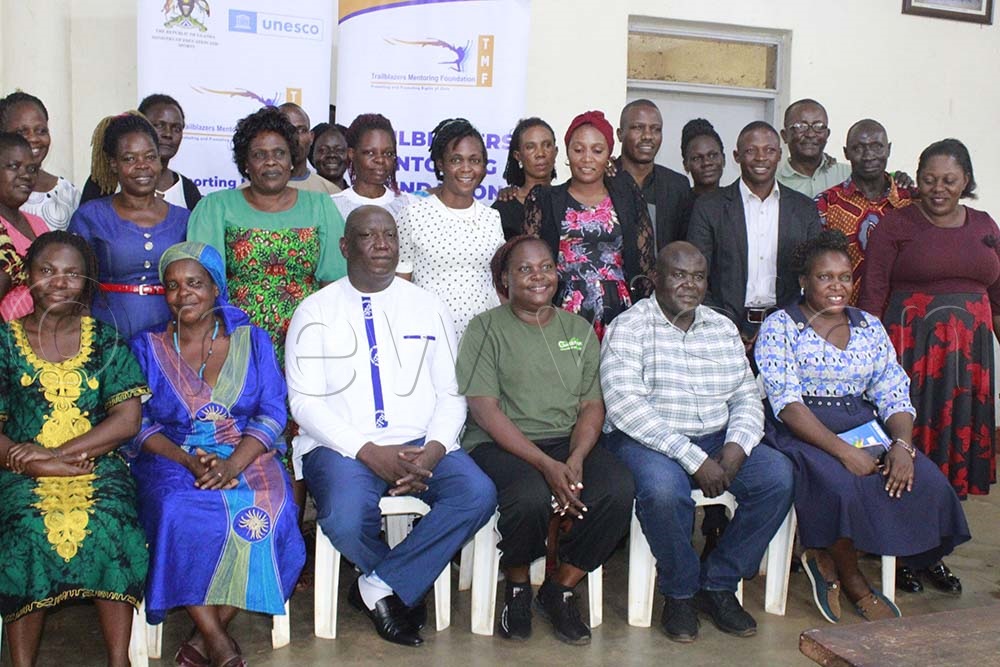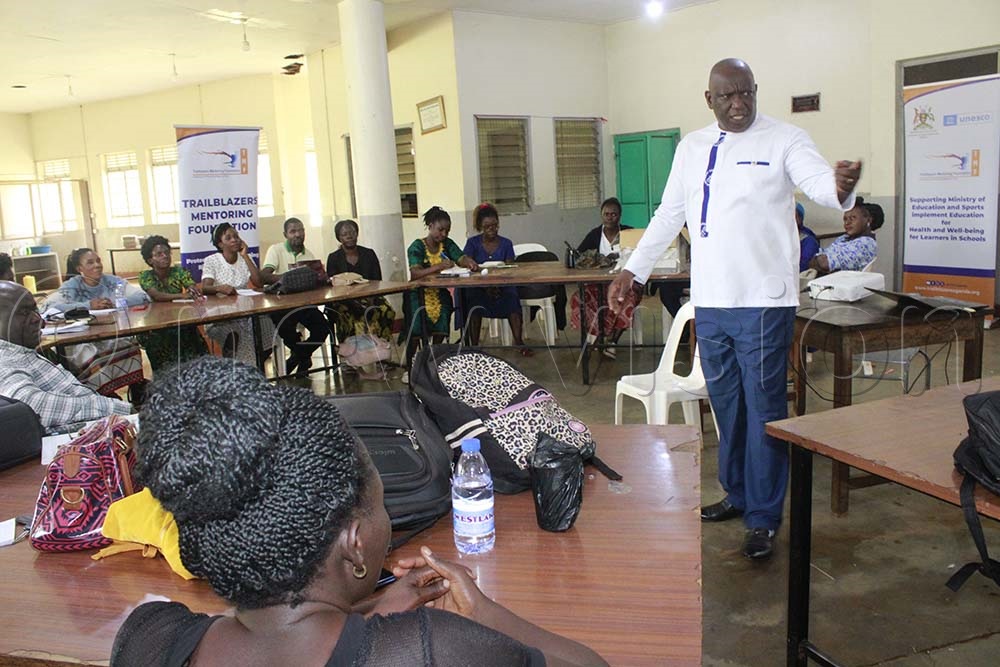Teachers told to drop 'kiboko', embrace positive discipline
Kisambira urged teachers to take up the alternative punishments recommended by the ministry. These include involving family members, assigning classroom chores like sweeping, and offering guidance and counselling.
Teachers were reminded to remain calm when disciplining students, use gentle language, and keep emotions in check.
By Jacky Achan
Journalists @New Vision
JINJA - Jinja District Education Officer Eria Kisambira has warned teachers against punishing learners by the cane, noting that the practice not only breaks the law.
Speaking during a three-day teacher training at MM Wairaka College, Kisambira suggested that corporal punishment is partly to blame for low enrolment and poor retention in some primary and secondary schools in the district.
He reminded teachers that the Children’s Act was amended in March 2016 to prohibit all forms of corporal punishment under Article 106A.
“Children will stay where they are loved,” Kisambira said.
He shared a recent experience from a school where Primary Three had the highest number of pupils. The head teacher could not explain why, so Kisambira visited the class himself.
He says what he found was a warm and engaging teacher who had brought a cluster of yellow bananas to reward every correct answer.
“The children responded with joy, surrounded her affectionately, and the classroom was not only lively but also noticeably clean.”
Kisambira said such positive reinforcement keeps children eager to learn and feel safe in school.
“You have the ability to help the children, but because of your ill-treatment, they run away from you,” he said. “Ensure learners stay in school because without them, you have no jobs.”
Eria Kisambira (seated third from left) with some of the teachers who attended the training. (Credit: Jacky Achan)
The training, organised by the Ministry of Education and Sports, in partnership with UNESCO and Trailblazers Mentoring Foundation (TMF), from July 11-13, 2025, focused on building respectful relationships and reducing gender-based violence in schools.
Kisambira urged teachers to take up the alternative punishments recommended by the ministry. These include involving family members, assigning classroom chores like sweeping, and offering guidance and counselling.
He emphasised that all teachers, not just the senior woman and senior man, should participate in supporting learners.
Resty Naigaga, the Community Development Officer for Buwenge Sub-county, noted that her office still receives cases of children being beaten, sometimes to the point of injury.
She advised teachers to learn and practice six steps of positive discipline, which focus on engaging learners with calm authority and guiding them to make better choices.
She also cautioned against rushing to send children home, pointing out that some parents react harshly and may even withdraw their children from school entirely.

Kisambira warned teachers against caning learners. (Credit: Jacky Achan)
Teachers were reminded to remain calm when disciplining students, use gentle language, and keep emotions in check. “Harsh words and shouting,” Kisambira added, “can be as damaging as the cane.”
Joyce Atimango, a mentor and executive director of Trailblazers Mentoring Foundation, urged teachers to discipline children with empathy. “Put yourself in a parent's shoes before beating that child,” she said.
“If the child was yours, would you torture them?” She encouraged teachers to promote child protection in their schools and to empower children to report abuse by using the national child helpline number 116.
As the country continues to push for safer and more inclusive learning environments, Atimango urged teachers to empower children to report cases of abuse on toll-free number 116.
“Be a change agent in your school and community,” she asked of the teachers.